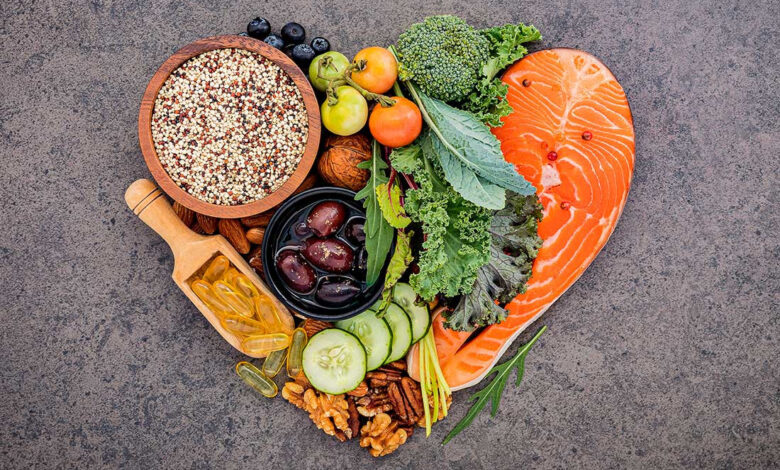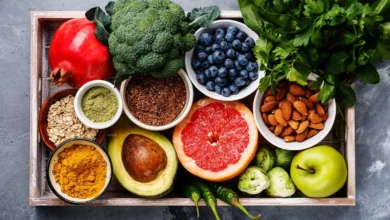
Introduction: Embracing a plant-based diet has become increasingly popular in recent years, and for good reason. Not only is it beneficial for our health, but it also has a positive impact on the environment and animal welfare. In this comprehensive guide, we’ll explore the numerous benefits of a plant-based diet, share valuable tips for transitioning to plant-based eating, and provide delicious recipes to help you get started on your plant-based journey.
Benefits of a Plant-Based Diet:
- Improved Heart Health: Plant-based diets are naturally low in saturated fats and cholesterol, making them beneficial for heart health. Studies have shown that individuals following a plant-based diet have a lower risk of heart disease and stroke.
- Weight Management: Plant-based diets are typically high in fiber and low in calories, making them ideal for weight management and promoting satiety. Plant foods are also rich in vitamins, minerals, and antioxidants, which support overall health and well-being.
- Reduced Risk of Chronic Diseases: Research has linked plant-based diets to a reduced risk of chronic diseases such as type 2 diabetes, hypertension, and certain types of cancer. The abundance of phytonutrients and antioxidants found in plant foods help protect against oxidative stress and inflammation.
- Environmental Sustainability: Plant-based diets have a lower carbon footprint compared to diets rich in animal products. By choosing plant-based foods, individuals can reduce their environmental impact and contribute to sustainability efforts.
- Animal Welfare: Adopting a plant-based diet reduces the demand for animal products, thereby promoting animal welfare and ethical treatment of animals.
Transitioning to a Plant-Based Diet:
- Start Slow: Transitioning to a plant-based diet doesn’t have to happen overnight. Start by incorporating more plant-based meals into your diet gradually and experiment with different recipes and ingredients.
- Focus on Whole Foods: Choose whole, minimally processed plant foods such as fruits, vegetables, whole grains, legumes, nuts, and seeds. These foods are nutrient-dense and provide a wide range of essential nutrients.
- Get Creative in the Kitchen: Experiment with new flavors, cuisines, and cooking techniques to keep your plant-based meals exciting and delicious. Explore plant-based substitutes for your favorite animal-based ingredients and discover new culinary possibilities.
- Stay Informed: Educate yourself about the nutritional needs of a plant-based diet and ensure you’re getting an adequate intake of essential nutrients such as protein, iron, calcium, vitamin B12, and omega-3 fatty acids. Consider consulting with a registered dietitian for personalized guidance and support.
Plant-Based Recipes:
- Chickpea and Vegetable Stir-Fry: A colorful and flavorful dish made with chickpeas, bell peppers, broccoli, carrots, and snow peas, seasoned with ginger, garlic, and soy sauce.
- Lentil and Sweet Potato Curry: A hearty and satisfying curry featuring lentils, sweet potatoes, tomatoes, and spinach, simmered in a fragrant blend of Indian spices.
- Quinoa Salad with Avocado and Black Beans: A refreshing salad combining cooked quinoa, avocado, black beans, cherry tomatoes, red onion, cilantro, and lime dressing.
- Mushroom and Spinach Stuffed Bell Peppers: Nutrient-packed bell peppers stuffed with a savory filling of mushrooms, spinach, quinoa, onions, and garlic, baked to perfection.
- Vegan Buddha Bowl: A nourishing bowl filled with a variety of colorful vegetables, grains, legumes, and a creamy tahini dressing, perfect for a balanced and satisfying meal.
Transitioning to a plant-based diet offers numerous health benefits, promotes environmental sustainability, and supports animal welfare. By incorporating more plant-based foods into your diet and exploring delicious plant-based recipes, you can nourish your body, protect the planet, and enjoy a diverse and flavorful culinary experience. Embrace the power of plants and embark on a journey towards better health and well-being with a plant-based diet.





